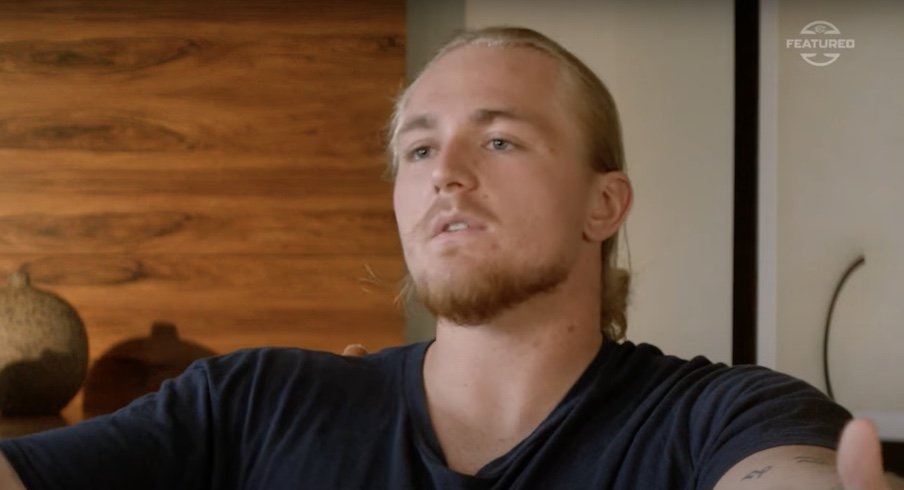Harry Miller and Ryan Day talked about the importance of mental health during a feature on ESPN’s SportsCenter on Sunday morning.
Content warning: this article discusses self-harm and suicide.
In a segment titled “Day by Day,” ESPN’s Jen Lada talked to Miller and Day about their efforts to erase the stigma that comes with talking about mental health.
Day, his wife Christina and Miller talked about the importance of taking a proactive stance toward positive mental health and making sure everyone, not just athletes, feel safe in talking about anything that they might be going through.
“Being aware of your thoughts, being aware of your mental health, is important.”– Ryan Day
As children, Christina and Ryan were teammates on the same baseball team, coached by Ryan's father, Raymond. After his father's suicide, Christina saw that “Ryan's ambition and intensity came from wanting to always be mentally tough, and not show a lot of weakness.”
“That was where I think the chip came from,” Day said. “It was like 'Okay, you get a dad, but I'm going to beat you on the field.'”
For a long time Ryan Day focused on sports and coaching, refusing to talk about his father for years. But as the years passed, and he began to process what had happened, Day started to think about it differently, he told Lada.
“You have sadness, you have anger, you have guilt, you have resentment. And then as you get older you start to recognize that maybe he was sick,” Day said.
In 2018, Day took a recruiting visit to an Ohio high school that had just experienced its seventh suicide of the year. Shaken, Day called his wife on the way home and both agreed it was time for them to begin to speak up about mental health awareness.
On June 5th, 2019, Ryan Day opened up about his father's suicide during a press conference on the same day he and his wife launched started The Christina and Ryan Day Fund for Pediatric and Adolescent Mental Awareness. Working with Nationwide Children's Hospital, they joined the On Our Sleeves campaign to help educate, advocate and fundraise for children's mental health and safety.
Day also helped transform the Ohio State athletic department's approach to mental health. In the summer of 2019, Ohio State added four-full time mental health professionals to their athletic department staff, including two full-time psychologists. Dr. Candice Williams, an athletic counselor, told Lada: “I knew it was important the day that he stopped practice during training camp to introduce us.”
“If I had a gun, I probably wouldn't be here.”– Harry Miller
Former Ohio State offensive lineman Harry Miller’s suicidal ideations started when he was just eight years old. He told Lada they became “latent” as he got older and went into college.
“I would have pervasive suicidal thoughts, and I just thought ‘Well, this must be how everyone thinks,’” Miller said. He began to self-harm in escalating ways, and eventually recognized he needed to reach out to someone.
Before the 2021 season began, Miller approached Day, who immediately got him in contact with mental health professionals. Miller began seeing a psychiatrist on Ohio State's staff. He shared his story with the world in March, when he announced his retirement from football.
Miller told Lada it was easier for him to open up to Day because Day has been open about his own mental health challenges. He credits the system that was in place at Ohio State with “saving his life.”
“He had had an experience himself, and that equipped him with the ability to respond quickly, and to not be [...] dismissive about it,” Miller said.
Says Day: “If I'm willing to share my story, and willing to share some personal thoughts, then maybe they'll be more willing to do so.”
You can watch the entire feature below:
If you or anyone you know might be having thoughts of suicide or is in any kind of emotional distress, please contact the National Suicide Prevention Lifeline at 1-800-273-TALK(8255) or online at suicidepreventionlifeline.org.


